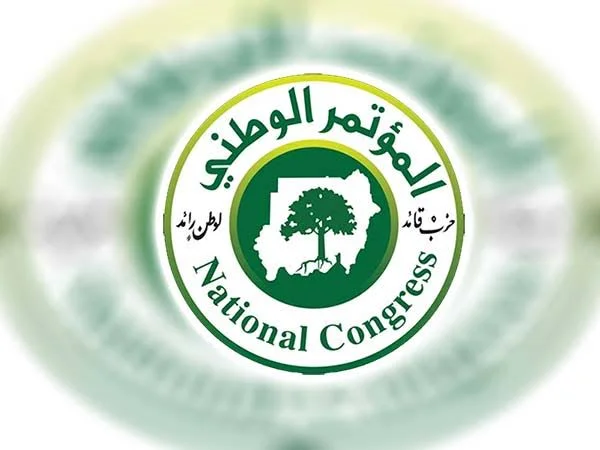Reports
The Shura in Times of War: Who Poisoned the King to Inherit Him from Within the National Congress?

Report by: Azmi Abdel Razek
In a surprising turn of events, the saga of the National Congress Party (NCP) has resurfaced, reclaiming its place in the news cycle. It cuts through the tragedies of war without entirely overshadowing them. This time, however, the discussion appears driven by the challenges of rebranding the party, renewing leadership, and recalibrating its political compass, influenced by reflections on the “Cooper Prison Notebook” or whatever the cadres decide—borrowing from Stalin’s rhetoric.
The Theater of the Absurd
This resurgence of attention has brought internal disputes into the open, particularly concerning the next leader to be approved by the Shura Council. The familiar debate lingers: is the council’s decision binding or merely advisory? How will the Islamist party address its no-longer-concealed organizational rifts? And who has the right to steer the party into its next phase—Ibrahim Mahmoud, Ahmed Haroun, or both as characters in a theater of the absurd?
Leaked information suggests power struggles involving key figures like Dr. Nafie Ali Nafie and Sheikh Ali Karti, Secretary-General of the Islamic Movement, or unseen hands operating from behind the curtain. Even optimists foresee a “new split” marked by the same old guard. The party’s spiritual architect, Sheikh Hassan al-Turabi, is no longer present to provide guidance. He left behind a “Successor System” born from lessons of the past. But where does that system stand now? How did leadership transfer from Omar al-Bashir to Ahmed Haroun, then to Prof. Ghandour, and finally to engineer Ibrahim Mahmoud during a turbulent period of imprisonments and trials?
Settling the Dispute
This month, the interim head of the Shura Council, Osman Mohammed Youssef Kibir, attempted to quell the uproar with a brief statement. He announced that the council’s ninth session was postponed to a later date, entrusting the Shura Council Board to reconcile the competing factions in recognition of the country’s need for unity.
Reports also mentioned a supposed agreement between Kibir, Ibrahim Mahmoud, and Ahmed Haroun to convene the council meeting in a spirit of harmony. The statement emphasized the importance of unity and mutual respect but provided no substantive details about the agreements reached during their private meetings.
No Voice Above the Call of Honor
Meanwhile, Islamist groups aligned with the army have chosen silence or indirect grumbling to express their views. They seem to perceive this dispute as a divisive test, opting to keep their weapons and tongues restrained, for “no voice rises above the voice of the battle for dignity.”
Yet, the root of the discord isn’t new. The debate over rebranding—whether to abandon the National Congress name entirely or retain it—remains contentious. Sheikh Ali Karti and the Islamic Movement lean toward discarding the name, deeming it a relic of the past. Others argue that the National Congress still resonates with the public and remains unshaken by recent political upheavals. They contend that launching a new party, such as the “Future Movement for Reform and Development,” is merely an attempt to bury the National Congress.
Who Poisoned the King?
Following Sheikh Al-Zubair Ahmed Al-Hassan’s death, the Islamic Movement’s leadership passed to Sheikh Ali Karti. He was among the few deputies untouched by imprisonment. Accepting this burden after others declined, Karti undertook efforts to unify the Islamist ranks while avoiding direct confrontations with state forces and revolutionary blocs. His approach involved managing adventurous party members with military ties, focusing on broad Islamic unity under the banner of collective service rather than extremist rhetoric.
However, Karti faced challenges from both Al-Dagalo’s forces and a faction of the party leadership—dubbed the National Congress’ “Executive Office”—which felt betrayed and suspected an intentional plot to “poison the king” from within the party’s ranks.
A New Leadership and Vision
Party member Haj Majid Siwar has called for a fresh leadership untainted by past failures. He supports deferring contentious issues, like the leadership battle between Haroun and Mahmoud, to focus on the broader conflict against Al-Dagalo’s militia. Siwar advocates for a younger leadership, under 40, to guide the party forward.
Conversely, prominent member Amin Hassan Omar believes that the current Shura Council proceedings are legitimate and necessary. He defended Haroun, describing him as a man of action, dismissing criticisms as fears from both enemies and close associates.
The Phoenix in Flames
Journalist Mohammed Osman Ibrahim views the National Congress’ crisis optimistically, claiming it has revived honest political rivalry in Sudan for the first time in years. He noted the absence of foreign intervention in these disputes, highlighting their national character.
Regardless of whether the Shura Council formally convened and chose Haroun or merely postponed its decisions, some see this as a sign of organizational health, while others warn of an existential crisis. The truth, as always, will emerge from the ensuing debates. For now, the National Congress rises from the ashes of its silence like a phoenix, preparing for either a grand comeback or final demise.



